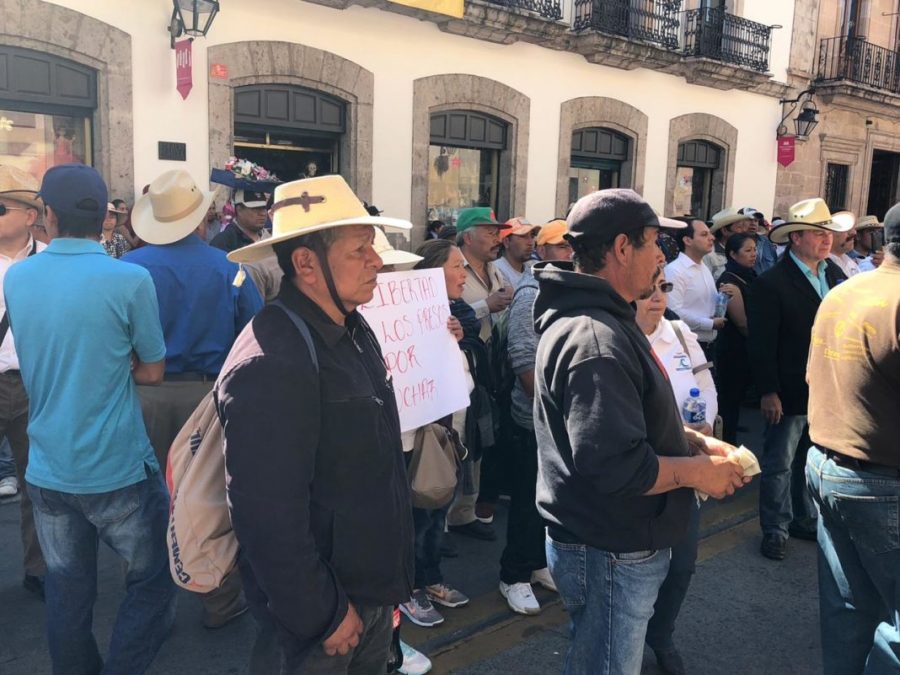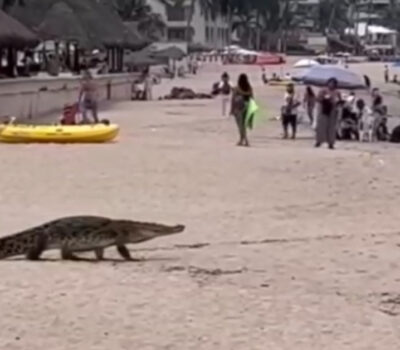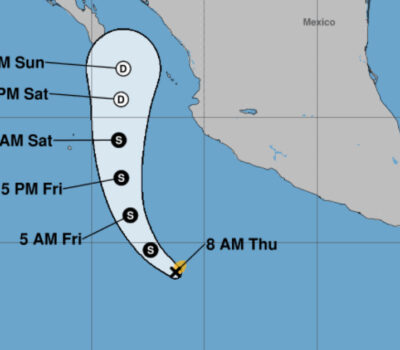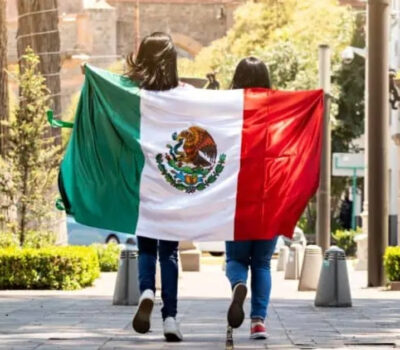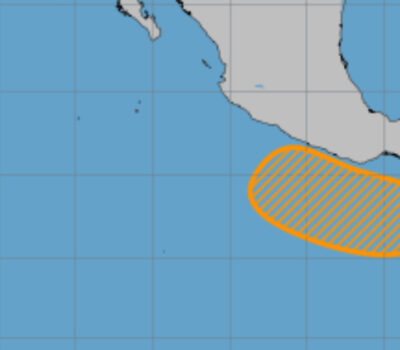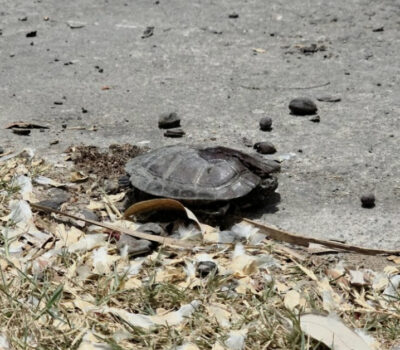With heavily armed state police patrolling the streets and its central plaza nearly desolate in the morning mist, the tension in the Mexican town of Nahuatzen is palpable.
The hamlet is one of about 50 indigenous communities in the southwestern state of Michoacan fighting to achieve autonomy for their town or village, according to the state government.
Locals say that after years of government corruption and soaring crime, they are better off managing public resources themselves.
“In 82 years of municipal presidents, they’ve never bothered to give the community, the people, the services or the progress that Nahuatzen (deserves),” said Efrain Villagomez Talavera, one of the town’s indigenous councillors.
“In my dreams, I would like to see … communities achieve true progress, not just in words,” he said.
Guaranteed under Mexico’s Constitution, self-determination allows indigenous communities to elect a citizens’ council which receives public funding directly and administers it among police, infrastructure, health and other services.
About 15% of Mexico’s population identifies as indigenous, according to the United Nations.
Some communities in Michoacan have managed to find relative peace since becoming autonomous, such as neighboring Cheran, one of the first towns to achieve independence in 2012.
Once plagued by entrenched organized crime, the community has become a relative safe haven in one of Mexico’s most violent states.
But other towns have had a bumpier road since achieving autonomy.
In Nahuatzen, a group of residents first sought independence for the town in 2015, arguing that corruption and the presence of organized crime within municipal authorities made them unfit to govern.
Two years later, the group became formally recognized by state and federal authorities as the town’s Indigenous Citizens’ Council.
But council members say the ruling hasn’t been properly respected and accuse the government of stymieing independence efforts – both claims that authorities deny.
“We have worked with all the communities that are (in the process) of self-determination,” said Noel Garcia Cancino, director of analysis and political development at the Michoacan interior ministry.
“(Nahuatzen) have cut themselves off from the government… We’re not the bad guys,” he told the Thomson Reuters Foundation in his office in the state capital, Morelia.
After nearly five years of conflict, the question of independence has left the town of some 10,000 torn apart, with residents split between those who support the council and those who back the municipal government.
INDEPENDENT TOWNS
The cradle of the indigenous self-determination movement in Michoacan state is Cheran, home to about 18,000 mostly Purepecha residents.
Here, it’s community police that man entry checkpoints and patrol the streets, while the market bustles with sellers speaking the local Purepecha dialect.
“(The party-based) system of government wasn’t useful to us anymore, because there was a lot of corruption,” explained Isidro Hernandez Diego, a teacher and one of the town’s 12 indigenous councillors.
The frustration boiled over in April 2011, Diego said, when outraged residents expelled their mayor and local police force, whom they accused of being complicit in widespread illegal logging believed to be supported by drug cartels.
The following year, citizens set up a new governing council based on indigenous customs.
Mexico’s Supreme Court later ruled the council constitutional.
Bureaucracy under the council means services and infrastructure development are slower than before, residents said, and political participation has dropped since independence.
But despite these hurdles, most locals agree the process has been worthwhile.
Since the town became autonomous, residents say crime has plummeted and the community has built what local media calls the largest rainwater capture system in Latin America.
According to official figures, residents have replanted more than one million trees since achieving autonomy.
“This form of government has made us much stronger,” said Diego.
“It’s helped us to recover our identity.”
INTERNAL CONFLICT
Any community in Mexico that self-identifies as indigenous is guaranteed the right to autonomy, according to the Mexican Constitution.
But in the case of Nahuatzen, there is some debate around whether the town can even call itself indigenous.
Like Cheran, Nahuatzen stands on land that was once ruled by the Purepecha who, in pre-colonial days, were one of the only kingdoms in central Mexico that Aztec armies never subdued.
But these days few, if any, residents of Nahuatzen speak Purepecha.
The issue is contentious in Mexico because up until the 1990s, the only indicator the government used to identify the indigenous population was whether they spoke one of the country’s 60 or so indigenous languages.
For Mayra Morales Morales, the president of Nahuatzen municipality – which includes the town of the same name and nine others – the bigger concern is the infighting happening in the name of indigenous rights.
“We’ve never denied (the council) … the right to be or not be indigenous,” she said.
The problem arises when people think that by being indigenous “you can do whatever you want”, she added.
Morales took over the job last May after her predecessor was murdered, sparking immediate violence: a group of residents attacked the council’s headquarters with Molotov cocktails, accusing the local leaders of orchestrating the murder.
The state attorney general’s office later announced that it had arrested the possible culprit, who was not a member of the council, though the case is ongoing.
But while the killing was unrelated to the town’s conflict, Morales said the attack on the council headquarters is part of a pattern of violence that has plagued Nahuatzen ever since it first sought independence.
She and other officials say council members themselves have set vehicles on fire and vandalized government property.
Talavera told the Thomson Reuters Foundation that the accusations against the councillors are false, part of an attempt to intimidate indigenous leaders.
‘EVEN OUR FAMILIES ARE FIGHTING’
Despite the tensions, Nahuatzen has seen some benefit to being autonomous.
Locals noted that the council had provided jobs in infrastructure projects, supported local schools and improved security with its community police force.
But in recent months, a rival group of residents has challenged the original indigenous council for control of Nahuatzen.
A complex court battle between both groups is ongoing, meaning government funds have been frozen since last February while the case proceeds, according to Morales.
As for local residents, most are just weary of the struggle.
Sitting in the town square on a recent chilly morning, Gustavo Arriola Lopez said he wants to see the local indigenous leaders stay in charge.
“What the council did in three years the government hasn’t done in 20,” the 21-year-old said.
But on the other side of the square, Angelica Jimenez, 50, said the council had done little to help the community and that the conflict was bad for business.
She had little hope that the town would ever come together.
“Even our families are fighting, my son against my husband,” she said. “I want things to go back to normal, but honestly I think it will be very difficult.”
Reporting by Oscar Lopez @oscarlopezgib; editing by Jumana Farouky and Zoe Tabary. Please credit the Thomson Reuters Foundation, the charitable arm of Thomson Reuters that covers humanitarian news, women’s and LGBT+ rights, human trafficking, property rights, and climate change. Visit http://news.trust.org
With heavily armed state police patrolling the streets and its central plaza nearly desolate in the morning mist, the tension in the Mexican town of . . .

